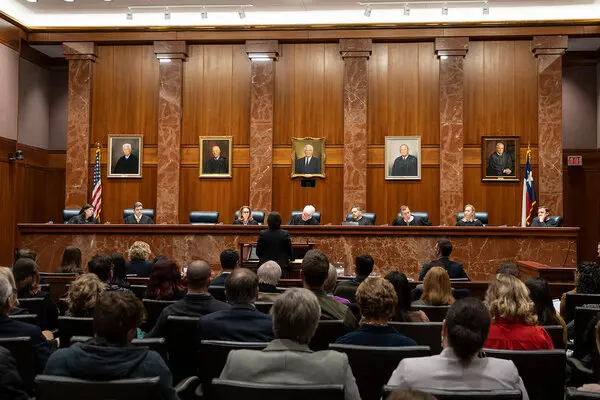In case you missed it, the Texas Supreme Court overturned a $90 million inflated verdict against Werner Enterprises, ruling in a 5-3 decision that the company was not liable for a 2014 crash. The court found that Werner’s involvement was merely a matter of “place and time” and that the true cause of the accident was the plaintiffs’ vehicle losing control on icy roads and entering oncoming traffic. While the plaintiffs argued Werner’s policies and driver speed contributed to the crash, the court held there was no proximate cause linking Werner to the injuries. Landline Media had the story:
“A verdict against Werner Enterprises that shocked the trucking industry years ago has been overturned. The case emphasized the need for tort reform across the country. In a 5-3 decision, the Texas Supreme Court reversed a lower court’s ruling that held Werner liable for $90 million in a personal injury lawsuit. This ruling is seen as a major win for trucking stakeholders, who were baffled by a truck driver facing such a large verdict despite no wrongdoing. While the Texas Supreme Court’s ruling allows Werner to breathe easier, it chose not to address tort reform, limiting its opinion.”
“‘This is a long-awaited win for Werner,’ Nathan Meisgeier, Werner’s president and chief legal officer, said in a statement. ‘After seven years navigating the appellate process, we are thankful the Texas Supreme Court reached the same conclusion as law enforcement – that the Werner drivers and our company did nothing wrong. A different outcome would have had far-reaching implications beyond the transportation industry.’”
“The Texas Supreme Court ultimately found that Werner’s involvement was ‘mere happenstance of place and time’ and could not be held liable. At trial, the plaintiffs were able to show that if not for the truck driver’s speed – which was below the posted limit but still unsafe for the conditions – the crash never would have happened. Or at the very least, it would have been less severe.”
“However, the high court found that although the Werner driver’s presence and speed may have ‘furnished the condition that made the injuries possible,’ it was not a proximate cause. Rather, the proximate cause ‘was the sudden, unexpected hurtling of the victims’ vehicle into oncoming highway traffic, for which the defendants bore no responsibility.’”
“‘That singular and robustly explanatory fact fully explains why the accident happened and who is responsible for the resulting injuries,’ Chief Justice Jimmy Blacklock wrote in the majority opinion. ‘Because no further explanation is reasonably necessary to substantially explain the origins of this accident or to assign responsibility for the plaintiffs’ injuries, the rule of proximate causation does not permit a factfinder to search for other, subordinate actors in the causal chain and assign liability to them.’”
By reversing a $90M jury award, this decision challenges the rise of frivolous lawsuits, which are often paired with a massive jury award fueled by emotional arguments and inflated settlements. This signals that higher courts may be more skeptical of such awards when there’s no clear-cut fault, creating better opportunities for reform.

